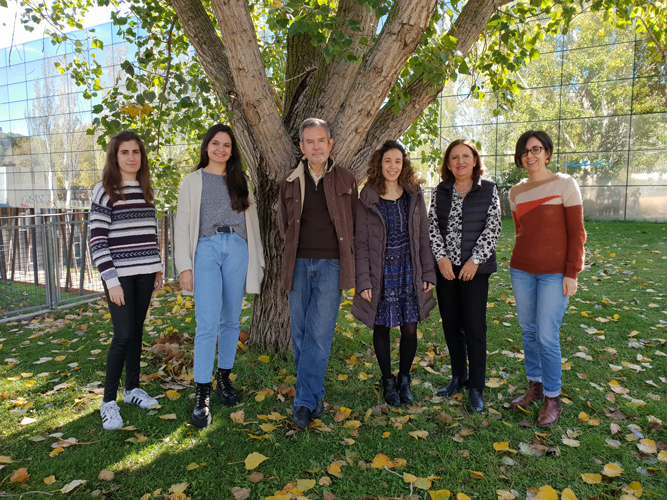Enmeper: ENDOCRINOLOGIA Y METABOLISMO PERINATAL

ENMEPER group is led by Fernando Escrivá Pons, Professor of the Faculty of Pharmacy (UCM). This group investigates on repercussions in adulthood of adverse conditions established in immature stages. Mainly, the effects of perinatal undernutrition on different aspects related to the production, secretion and tissue actions of insulin, directing attention to the molecular mechanisms that cause these effects.
Growth stages are critical because alterations that occur in these periods have pathological repercussions in the medium and long term. My scientific training, as well as the further research work, has been based on that premise. In my doctoral thesis I studied the impact of a postnatal excess of thyroid hormones ("neonatal thyrotoxicosis") on glucidic metabolism. After completing this work, I made a stay in a laboratory led by Prof. Alfred Jost (Collège de France, Paris), scientist who today is considered the initiator of the modern research on fetal endocrinology. His studies were continued by Jean Girard, his main collaborator, in whose laboratories of the CNRS (France) I made several stays. There, my work focused on a series of metabolic adaptations that occur in postnatal and suckling stages. That experience was completed with a succession of stays in the laboratory of Bernard Portha at the University Paris VII. The scientific group he led had an outstanding international relevance in the research on endocrine pancreas, the ß cell and its pathological alterations. Another component of ENMEPER, Carmen Alvarez Escolá, also made several scientific stays in the Dr. Bernard's laboratory. The relationships between this researcher and our group have lasted a long time, persisting today and contributing to the progress of our line. The stays of another member of group, Elisa Fernández, in the laboratory of Guy Ratter (Bristol) led us to include the pancreatic α cells and glucagón in our studies.
Our research focuses specifically on the study of why the undernutrition/refeeding pattern paradoxically increases the tendency to obesity and diabetes. This work is progressing through the application of experimental models in Wistar rats. Recently, our vision of the problem has expanded by considering the following hypothesis: some causes of obesity and diabetes triggered by the undernutrition/refeeding pattern could result from alterations in the entero-endocrine axis. In order to carry out this work, our group has imported, improved or developed several sophisticated techniques and procedures, including: the hyperinsulinemic clamp, the extraction of functional pancreatic islets and histological and genomic approaches to analyze intestinal barrier and microbiota profile, respectively.
On the other hand, it is important to underline that our location on the university campus allow us to open our research to the management of students, to whom we direct postgraduate works such as TFG, TFM and doctoral thesis.
Funding over the past 5 years:
From the origin of the group, its Research Projects have been funded by different public institutions, both national and international. Those indicated below correspond to the last five years:
- Factores medioambientales implicados en el desarrollo del síndrome metabólico: restricción nutricional y microbiota intestinal. Ministerio de Economía y Competitividad Ref.: BFU2016-77931-R (2017-2019)
- Mecanismos moleculares y celulares implicados en la patogénesis de la obesidad y DM2 en ratas sometidas a subnutrición maternal y posteriormente realimentadas con dieta grasa. Ministerio de Economía y Competitividad Ref.: BFU2011-25420 (2012-2016)
- Estudio de los mecanismos de resistencia a la insulina: implicaciones en obesidad, diabetes y síndrome metabólico (MOIR). Grupo ENMEPER. Proyecto de la CAM. Ref. P201/BMD-2423. (2012-2015)
- Subvenciones como Grupo Complutense. CAM. Ref. 950610. 2009, 2010, 2011, 2014, 2015 y 2019.